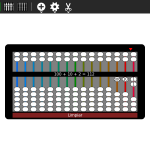Antonio Battro wrote recently about spontaneous reading and literacy experiments with laptops, in an essay on computers as reading prostheses (for children and others). In it he refers to Sugata Mitra’s work in India with the Hole in the Wall project:
In this sense, we should also experiment with spontaneous reading using a computer. OLPC will start now to deliver XO laptops with special software to remote communities with no schools where children and adults are lacking reading, writing or number skills. An inspiration was the famous “hole in the wall” experiment done in India with illiterate children who spontaneously started to read while sharing an unsupervised computer, what Sugata Mitra calls “minimally invasive education”.
Everything we learn in life is part of our education — most of it not conveyed explicitly by instructors. From your own experience: how has minimally invasive education been part of your life, in contrast with controlled, highly directed learning?




